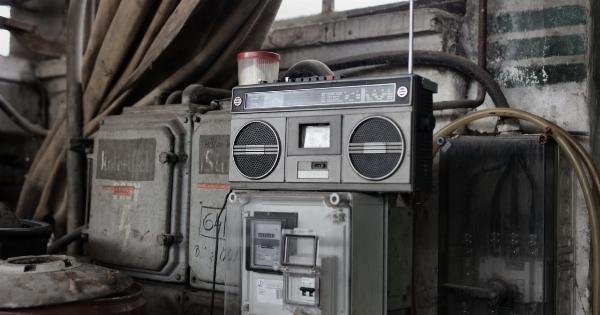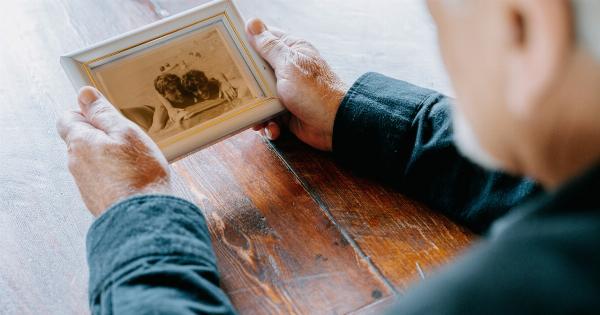Nostalgia is a powerful feeling that most of us have experienced at some point in our lives. It’s the yearning for things that have happened in the past, a longing to relive memories that we hold dear.
While some people might say that nostalgia is just a pointless exercise in looking back, there are actually many benefits to feeling nostalgic. In this article, we’ll explore the positive impact that nostalgia can have on your life.
What is Nostalgia?
Firstly, let’s define what we mean by nostalgia. Nostalgia is a sentimental longing or wistful affection for a period in the past. This period could be a specific event, a time of life, or a particular cultural trend.
Nostalgia is often triggered by a sensory experience, such as a song, a smell, or a photograph. It’s a flashback to a time when life seemed simpler, happier, or more carefree.
The Psychological Benefits of Nostalgia
So, why do we feel nostalgia? According to research, nostalgia serves an important psychological function. It helps us to maintain a positive self-image and to cope with feelings of loneliness, anxiety, or insecurity.
When we feel nostalgia, we are tapping into a reservoir of positive emotions that can boost our mood and increase our wellbeing. Here are some of the psychological benefits of nostalgia:.
1. Nostalgia can improve your mood
One of the most well-known benefits of nostalgia is its ability to improve our mood. When we feel nostalgic, we are transported back to a time when we felt safe, happy, and loved.
This flood of positive emotions can counteract feelings of sadness, anxiety, or depression. Nostalgia can help us to see the bright side of life and to appreciate the good things that we have in the present.
2. Nostalgia can boost your self-esteem
Another benefit of nostalgia is that it can boost our self-esteem. When we remember happy times from our past, we are reinforcing our sense of identity and purpose. We are reminded of our accomplishments, our relationships, and our values.
This can make us feel more confident, more capable, and more optimistic about our future. Nostalgia can help us to recognize our strengths and to overcome our weaknesses.
3. Nostalgia can help you cope with stress
When we are faced with stressful situations, nostalgia can be a powerful coping mechanism. It gives us a sense of stability and continuity that we might not find in the present.
When we feel nostalgic, we are reminded that we have survived difficult times before and that we can do it again. Nostalgia can be a source of resilience and strength in times of uncertainty.
4. Nostalgia can improve your social connections
Finally, nostalgia can improve our social connections. When we share nostalgic memories with others, we are strengthening our bonds with them. We are creating a shared history that we can draw on in the future.
Nostalgia can be a way of building intimacy, trust, and affection with the people in our lives. It can help us to appreciate what we have and to feel more connected to our community.
The Benefits of Nostalgia on Health
While nostalgia is often thought of as a purely psychological experience, there is also evidence that it can have physical benefits. Here are some of the ways that nostalgia can impact your health:.
1. Nostalgia can reduce feelings of pain
Research has shown that nostalgia can reduce feelings of physical pain. When we feel nostalgic, our brain releases endorphins – chemicals that act as natural painkillers.
This can help to relieve chronic pain as well as acute pain from injuries or other sources. Nostalgia can be a form of self-care that can improve our quality of life.
2. Nostalgia can improve sleep quality
Another benefit of nostalgia is that it can improve our sleep quality. When we feel nostalgic, we are tapping into a sense of comfort and security that can help us to relax. This can lead to better sleep quality and better overall health.
People who experience nostalgia on a regular basis may have fewer sleep disturbances and better sleep hygiene.
3. Nostalgia can enhance creativity
Finally, nostalgia can enhance our creativity. When we feel nostalgic, we are accessing a different part of our brain that can inspire us to think in new and innovative ways.
Nostalgia can provide us with a fresh perspective on our lives, our relationships, and our goals. It can help us to come up with creative solutions to problems and to pursue new avenues of self-expression.
Conclusion
So, what can we learn from the benefits of nostalgia? While it might be tempting to dismiss nostalgia as a useless exercise in sentimentality, the truth is that nostalgia can be a powerful tool to help us cope with life’s challenges.
By tapping into our positive memories of the past, we can improve our mood, boost our self-esteem, and enhance our wellbeing. We can also improve our physical health by reducing pain, improving sleep quality, and enhancing our creativity. So, the next time you find yourself feeling nostalgic, embrace the feeling and enjoy the positive benefits that it can bring to your life.






























